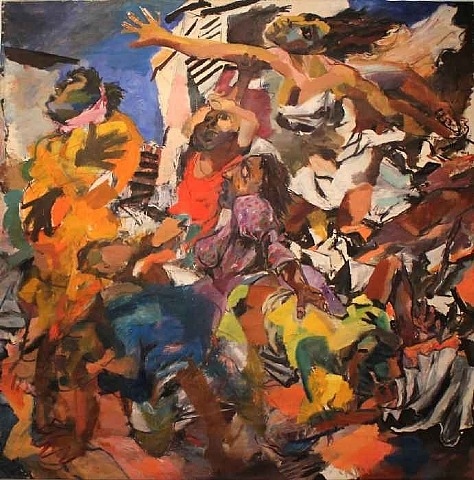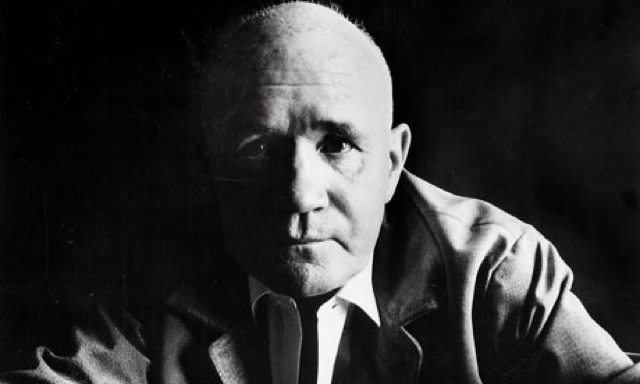John Doyle, writer for the esteemed Globe and Mail, and often someone I can agree with, has truly missed the mark on this one. His recent article for the Globe which argues that the purpose of such shows as "Here Comes Honey Boo Boo" is to "kick open the shutters of closed societies and closed minds" could not be further from accurate. Certainly, I can agree that popular culture at its best will do just this; it will push the edges of what society deem acceptable from a perspective of fashion, music, pop art. The very best pop culture is where the lines of art and pop merge and blur - the Sex Pistols, rave culture, David Bowie, etc. The difference, however, is that these have something to say, a commentary on the state of the world as it is now compared with how it ought to be.
To state that a show like "Here Comes Honey Boo Boo" is doing something like this is, for me, a stretch. What it is, simply, is voyeurism. There are people who live differently from our own experience, and there has always been an interest in how "the other half" live. Jean Genet made a career of this instinct for voyeurism, writing plays which exposed our own human base desire to see and be seen, to control our image. This interest, however, does not appeal to our intellect (or heck, even an anthropological interest). Rather, it appeals to our most base desire to see people at their worst. Watching a family who so clearly will say and do anything if the TV cameras are watching is not condemned by critics for touching close to home, a harbinger of the death of the middle class, as Doyle argues. It is condemned for the same reason most reality television is condemned by thinking people; it encourages the lowest common denominator, pushing humanity not toward our best, but our worst.
The example Doyle gives of Roseanne Barr is a misguided one; Barr did challenge bourgeois ideas about the working class, but did so in a way that demonstrated the humanity, intelligence, and integrity of the working class. She pushed her audiences to look past stereotypes. The family in Honey Boo Boo take her cause back 20 years, portraying the working class exactly as bourgeois stereotypes would want them to be; rednecked yokels, overweight, feeding their child cheetos at every turn, swimming in mud holes.
I have been giving a lot of thought to these reality shows, in particular ones which focus on children, making them "stars" - this is a singularly distressing development in popular culture, and one we must be wary of encouraging. Think of the hundreds of children featured on these shows, or exposed to watching them. . . what will happen to their ability to value integrity and hard work? We already see a generation of entitlement graduating from our high schools, kids who have never been failed despite poor attendance and effort. Now these kids are going to universities or into the workforce, without any preparation for the challenges of life, and into one of the most challenging job markets in recent history. A recipe for the downfall of our ability to continue as a society, if you ask me . . .
To state that a show like "Here Comes Honey Boo Boo" is doing something like this is, for me, a stretch. What it is, simply, is voyeurism. There are people who live differently from our own experience, and there has always been an interest in how "the other half" live. Jean Genet made a career of this instinct for voyeurism, writing plays which exposed our own human base desire to see and be seen, to control our image. This interest, however, does not appeal to our intellect (or heck, even an anthropological interest). Rather, it appeals to our most base desire to see people at their worst. Watching a family who so clearly will say and do anything if the TV cameras are watching is not condemned by critics for touching close to home, a harbinger of the death of the middle class, as Doyle argues. It is condemned for the same reason most reality television is condemned by thinking people; it encourages the lowest common denominator, pushing humanity not toward our best, but our worst.
The example Doyle gives of Roseanne Barr is a misguided one; Barr did challenge bourgeois ideas about the working class, but did so in a way that demonstrated the humanity, intelligence, and integrity of the working class. She pushed her audiences to look past stereotypes. The family in Honey Boo Boo take her cause back 20 years, portraying the working class exactly as bourgeois stereotypes would want them to be; rednecked yokels, overweight, feeding their child cheetos at every turn, swimming in mud holes.
I have been giving a lot of thought to these reality shows, in particular ones which focus on children, making them "stars" - this is a singularly distressing development in popular culture, and one we must be wary of encouraging. Think of the hundreds of children featured on these shows, or exposed to watching them. . . what will happen to their ability to value integrity and hard work? We already see a generation of entitlement graduating from our high schools, kids who have never been failed despite poor attendance and effort. Now these kids are going to universities or into the workforce, without any preparation for the challenges of life, and into one of the most challenging job markets in recent history. A recipe for the downfall of our ability to continue as a society, if you ask me . . .




